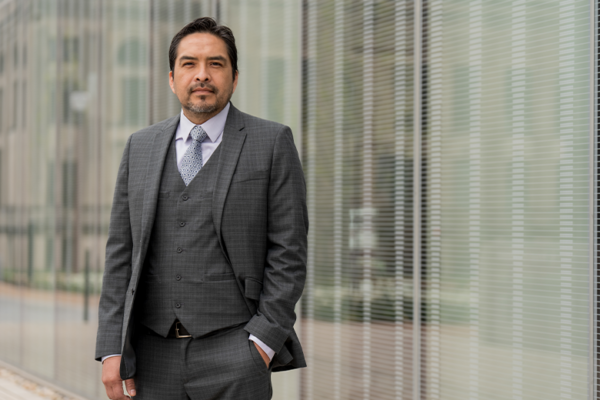
Anca Parvulescu, the Liselotte Dieckmann Professor in Comparative Literature and a professor of English, both in Arts & Sciences, at Washington University in St. Louis, will serve as principal investigator for a $1.2 million grant exploring the history of comparatism and the origins of the comparative method.
The project is funded by the European Union, through a 2 1/2-year Next Generation grant, and is hosted by Babeș-Bolyai University in Cluj, Romania. Parvulescu’s team of 17 international scholars ranges from tenured faculty to doctoral candidates and postdoctoral fellows.
“We’re interested in how the comparative method develops on the margins of European empires,” said Parvulescu, author, with sociologist Manuela Boatcă, of “Creolizing the Modern: Transylvania Across Empires” (2022), which won awards from both the American Comparative Literature Association and the American Sociological Association. “Comparative literature is theoretically about multilingualism, but this ideal often gets filtered through imperial policy. We end up with a hierarchy that assumes the superiority of Western European literary traditions.”
While the ability to make comparisons is a fundamental aspect of human cognition, the comparative method represents a specific intellectual tradition, one that arose from 19th-century linguistics to shape a variety of disciplines across the humanities, sciences and social sciences.
Formerly part of the Austro-Hungarian Empire, Cluj (Kolozsvár in Hungarian and Klausenburg in German) is arguably the birthplace of comparative literature, thanks to the 1877 launch of Acta Comparationis Litterarum Universarum, a polyglot journal edited by Sámuel Brassai and Hugó Meltzl.

“It was a utopian moment,” Parvulescu said. “The assumption was that if you were writing on Cervantes, you’d publish in Spanish. If you were writing on Goethe, you’d publish in German. But this didn’t always happen; multilingualism ended up being implemented in selective ways. The analysis of a Romani-language poem was framed in German.”
In the metropolitan hearts of European colonial powers, cultural comparison could take triumphalist turns. But on the fringes, the interplay of local languages reflected political jostling. In Cluj, for example, German and Hungarian maintained an uneasy accord with the French world of letters, but were in marked tension with regional languages, such as Romanian, Yiddish, Romani and Armenian.

“We’re looking at this cultural moment as a case study,” Parvulescu said. “But we’re also positing it as a global moment in which something similar is happening in other parts of the world. We’re interested in how so-called minor literary traditions thought about their relation to the big centers but also to each other. What emerges from this study is an expansive, heterogenous archive of comparative figures and approaches — at a global scale. In turn, methodological tools derived from this history enrich our sense of what comparatism can be today.”
Parvulescu recounts the story of a 1926 visit to Romania by Rabindranath Tagore, the Nobel Prize-winning Bengali writer, poet and composer. “He was welcomed as a hero,” Parvulescu said. “Romanian intellectuals were really invested in a non-European figure with whom they could bridge cultural relations horizontally, as opposed to the hierarchies of Paris or Berlin.”
Today, these hierarchies may have shifted, with English emerging as the dominant language of globalization, but the tensions remain familiar.
“We often refer to it as the monolingual paradigm,” Parvulescu said, “It’s a convergence toward one language that assumes a particular place in the politics of knowledge. Knowledge produced in that language is seen as superior to knowledge produced in other languages — if the latter are on the table at all. Today, this language is English. Our project reframes the politics of global English (and its attendant sociology of translation) against a long and complex history of monolingualization.”
In addition to WashU and Babeș-Bolyai, members of Parvulecu’s team are affiliated with the University of Freiburg, the University of North Carolina and the University of California, Los Angeles. Parvulescu noted that similar comparatist projects are underway at the University of Cambridge, the University of Bielefeld and the University of Warwick. She hopes to build on the work of the grant through WashU’s Center for the Humanities in Arts & Sciences.
Stephanie Kirk, director of the Center for the Humanities, said the grant “opens up exciting possibilities. I look forward to seeing how we might create programming, publication and U.S.-based grant writing opportunities, as well as collaboration among WashU humanities faculty and graduate students from different fields and language traditions.”
Parvulescu concluded: “I think the task of comparative literature is to do the work of respecting and cultivating languages around the world. Comparative literature insists, against all odds, on multilingualism as a value.”


